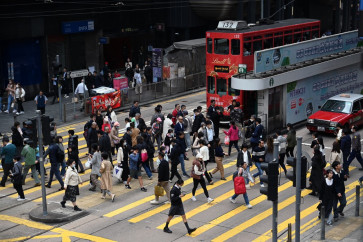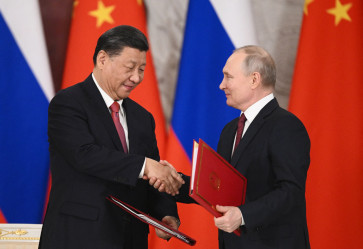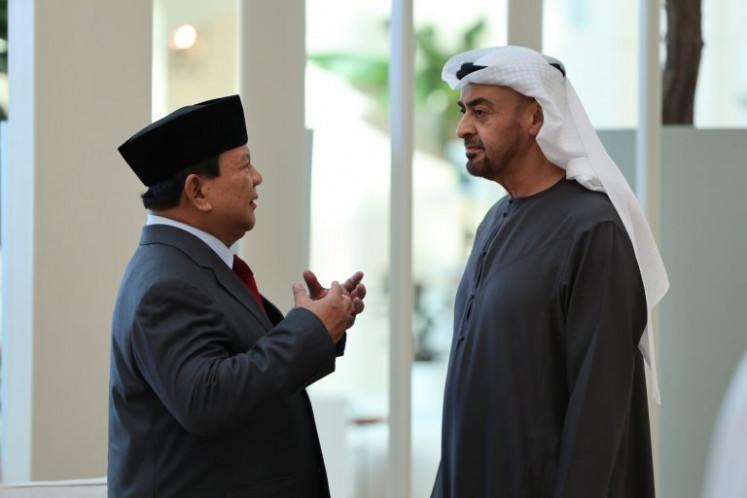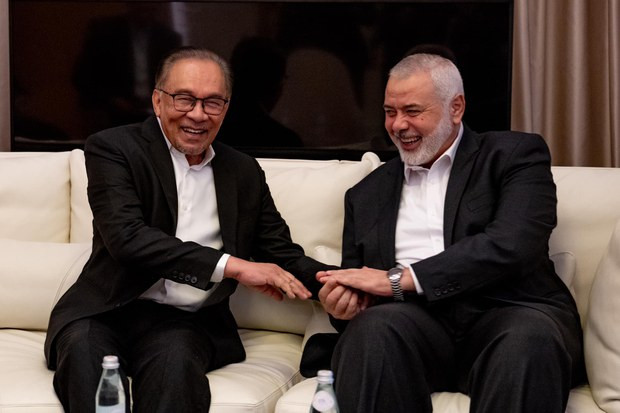RI needs to step up work in good governance
Civil society groups have called on the government to use the Open Government Partnership (OGP) Asia Pacific Regional Conference as momentum to step up its works in boosting transparency
Change Size

C
ivil society groups have called on the government to use the Open Government Partnership (OGP) Asia Pacific Regional Conference as momentum to step up its works in boosting transparency.
The groups, namely Transparency International Indonesia (TII), the International NGO forum Indonesian Development (INFID), MediaLink, Sloka Institute and Tifa Foundation, said that although various legal guidelines existed to guarantee public access to information and public services, the government had been too slow in implementing them.
As OGP chair for 2013 and 2014, Indonesia will host the first OGP Asia-Pacific Regional Conference in Nusa Dua, Bali between May 6 and 7.
President Susilo Bambang Yudhoyono is expected to give a keynote address at the conference.
'Indonesia is still facing many problems related to access to public information, public services and corruption. The OGP initiative can be used as momentum for the government to find solutions and to accelerate the implementation of good governance principles in the country,' TII's Ilham Saenong said over the weekend.
According to TII's latest research on good governance, the country has actually laid strong legal guidelines for transparency and public participation, including through several provisions in the Constitution and the 2008 Law on transparency of public information.
However, the research also found that one of the weakest points of the government was accountability and that the culture of secrecy had remained pervasive.
Such a culture has the potential to prompt the government to produce policies that are against good governance principles.
Such policies, for example, are the 2011 State Intelligence Law, which critics said could lead to a revival New Order-era techniques, including the kidnapping or involuntary disappearance of members of the opposition as well as the 2013 Mass Organization Law, which gives the government greater control over public activities.
TII's 2013 Global Corruption Barometer (GCB) found that 72 percent of 1,000 respondents perceived that corruption had worsened.
More than 65 percent of the same 1,000 respondents also said that the country's efforts to eradicate corruption were not effective.
The survey also named the National Police, the House of Representatives and the judiciary as the three-most corrupt public institutions in the country.
TII's 2013 Corruption Perception Index placed Indonesia in 114th place out of 177 countries surveyed with a score of only 32 on a scale from 0 (highly corrupt) to 100 (very clean) due to weak law enforcement, rampant abuse of authority and red tape.
Ahmad Faisol of Medialink said although Indonesia had participated in the OGP for the past three years, the government had yet to seriously implement good governance in the country and enforce the 2008 Law on transparency of public information and the 2009 Public Service Law.
The OGP was established in 2011 by eight countries, including Indonesia, as a multilateral initiative aiming to secure concrete commitments from governments to promote state transparency, encourage citizen participation in tackling corruption and harness new technology for governance.









